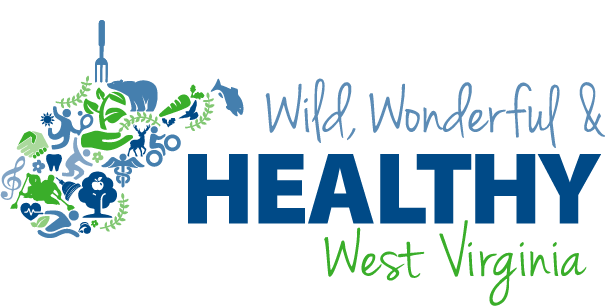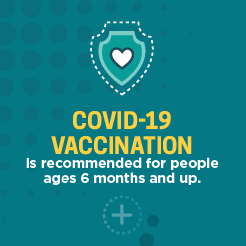|
|
|
|
|
|
1
|
|
2
|
3
-
1 on 1 Computer Help - by appointment only
1 on 1 Computer Help - by appointment only
February 3, 2025 10:00 am - 12:00 pm
Montgomery Public Library, 507 Ferry St, Montgomery, WV 25136, USA
See more details
-
Smithers Building Commission meeting
Smithers Building Commission meeting
February 3, 2025 4:00 pm - 5:00 pm
2 Greyhound Ln, Smithers, WV 25186, USA
Gateway Conference Room
If you are seeking a building permit, all your paperwork must be submitted to the city by the Friday before.
See more details
• •
|
4
-
Chair Yoga
Chair Yoga
February 4, 2025 11:30 am - 12:30 pm
518 Michigan Ave, Smithers, WV 25186, USA
Smithers Wellness Center - beside Smithers Fire Deptartment
For schedules and to reserve your place at a class, call City Hall at 304-442-5282.
See more details
-
Finance Review - City of Montgomery
Finance Review - City of Montgomery
February 4, 2025 4:00 pm - 5:00 pm
Montgomery City Hall, 321 4th Ave, Montgomery, WV 25136, USA
See more details
-
Court Hearings - City of Montgomery
Court Hearings - City of Montgomery
February 4, 2025 6:30 pm - 7:30 pm
Montgomery City Hall, 321 4th Ave, Montgomery, WV 25136, USA
See more details
• • •
|
5
-
Story Hour - Ages 3 to 6
Story Hour - Ages 3 to 6
February 5, 2025 3:00 pm - 6:00 pm
Montgomery Public Library, 507 Ferry St, Montgomery, WV 25136, USA
See more details
•
|
6
-
Lego/Knex
Lego/Knex
February 6, 2025 10:00 am - 5:00 pm
Montgomery Public Library, 507 Ferry St, Montgomery, WV 25136, USA
See more details
-
Spin Class
Spin Class
February 6, 2025 11:30 am - 12:30 pm
518 Michigan Ave, Smithers, WV 25186, USA
Smithers Wellness Center - beside Smithers Fire Department
For schedules and to reserve your place at a class, call City Hall at 304-442-5282.
See more details
-
Book Club - Montgomery Public Library
Book Club - Montgomery Public Library
February 6, 2025 1:00 pm - 2:00 pm
Montgomery Public Library, 507 Ferry St, Montgomery, WV 25136, USA
See more details
-
Open Art Studio - Gallery on 4'th
Open Art Studio - Gallery on 4'th
February 6, 2025 7:00 pm - 9:00 pm
414 4th Ave, Montgomery, WV 25136, USA
Bring your favorite medium and create some art in a space with good company!
See more details
• • • •
|
7
-
Adult Coloring
Adult Coloring
February 7, 2025 10:00 am - 5:00 pm
Montgomery Public Library, 507 Ferry St, Montgomery, WV 25136, USA
See more details
•
|
8
|
|
9
|
10
-
1 on 1 Computer Help - by appointment only
1 on 1 Computer Help - by appointment only
February 10, 2025 10:00 am - 12:00 pm
Montgomery Public Library, 507 Ferry St, Montgomery, WV 25136, USA
See more details
-
Smithers Fire Department Board of Directors meeting
Smithers Fire Department Board of Directors meeting
February 10, 2025 5:00 pm - 6:00 pm
2 Greyhound Ln, Smithers, WV 25186, USA
Gateway/City Hall Council Chambers
See more details
-
Smithers City Council meeting
Smithers City Council meeting
February 10, 2025 6:00 pm - 7:00 pm
2 Greyhound Ln, Smithers, WV 25186, USA
Gateway/City Hall Council Chambers
Live and by Zoom
See more details
• • •
|
11
-
Chair Yoga
Chair Yoga
February 11, 2025 11:30 am - 12:30 pm
518 Michigan Ave, Smithers, WV 25186, USA
Smithers Wellness Center - beside Smithers Fire Deptartment
For schedules and to reserve your place at a class, call City Hall at 304-442-5282.
See more details
-
Smithers Sanitary Board meeting
Smithers Sanitary Board meeting
February 11, 2025 4:00 pm - 5:00 pm
2 Greyhound Ln, Smithers, WV 25186, USA
See more details
-
Montgomery City Council meeting
Montgomery City Council meeting
February 11, 2025 7:00 pm - 8:00 pm
Montgomery City Hall, 321 4th Ave, Montgomery, WV 25136, USA
See more details
• • •
|
12
-
Story Hour - Ages 3 to 6
Story Hour - Ages 3 to 6
February 12, 2025 3:00 pm - 6:00 pm
Montgomery Public Library, 507 Ferry St, Montgomery, WV 25136, USA
See more details
•
|
13
-
Lego/Knex
Lego/Knex
February 13, 2025 10:00 am - 5:00 pm
Montgomery Public Library, 507 Ferry St, Montgomery, WV 25136, USA
See more details
-
Spin Class
Spin Class
February 13, 2025 11:30 am - 12:30 pm
518 Michigan Ave, Smithers, WV 25186, USA
Smithers Wellness Center - beside Smithers Fire Department
For schedules and to reserve your place at a class, call City Hall at 304-442-5282.
See more details
-
Upper Kanawha Valley Strategic Initiative Council Meeting
Upper Kanawha Valley Strategic Initiative Council Meeting
February 13, 2025 6:30 pm - 7:30 pm
Montgomery City Hall, 321 4th Ave, Montgomery, WV 25136, USA
Location alternates between Montgomery City Hall and the Gateway Community Center in Smithers every month. Call or email us at either location for details!
See more details
• • •
|
14
-
Adult Coloring
Adult Coloring
February 14, 2025 10:00 am - 5:00 pm
Montgomery Public Library, 507 Ferry St, Montgomery, WV 25136, USA
See more details
•
|
15
|
|
16
|
17
-
1 on 1 Computer Help - by appointment only
1 on 1 Computer Help - by appointment only
February 17, 2025 10:00 am - 12:00 pm
Montgomery Public Library, 507 Ferry St, Montgomery, WV 25136, USA
See more details
•
|
18
-
Chair Yoga
Chair Yoga
February 18, 2025 11:30 am - 12:30 pm
518 Michigan Ave, Smithers, WV 25186, USA
Smithers Wellness Center - beside Smithers Fire Deptartment
For schedules and to reserve your place at a class, call City Hall at 304-442-5282.
See more details
•
|
19
-
Story Hour - Ages 3 to 6
Story Hour - Ages 3 to 6
February 19, 2025 3:00 pm - 6:00 pm
Montgomery Public Library, 507 Ferry St, Montgomery, WV 25136, USA
See more details
-
City Beautification Strategic meeting
City Beautification Strategic meeting
February 19, 2025 6:00 pm - 7:00 pm
Montgomery City Hall, 321 4th Ave, Montgomery, WV 25136, USA
See more details
• •
|
20
-
Lego/Knex
Lego/Knex
February 20, 2025 10:00 am - 5:00 pm
Montgomery Public Library, 507 Ferry St, Montgomery, WV 25136, USA
See more details
-
Spin Class
Spin Class
February 20, 2025 11:30 am - 12:30 pm
518 Michigan Ave, Smithers, WV 25186, USA
Smithers Wellness Center - beside Smithers Fire Department
For schedules and to reserve your place at a class, call City Hall at 304-442-5282.
See more details
• •
|
21
-
Adult Coloring
Adult Coloring
February 21, 2025 10:00 am - 5:00 pm
Montgomery Public Library, 507 Ferry St, Montgomery, WV 25136, USA
See more details
•
|
22
|
|
23
|
24
-
1 on 1 Computer Help - by appointment only
1 on 1 Computer Help - by appointment only
February 24, 2025 10:00 am - 12:00 pm
Montgomery Public Library, 507 Ferry St, Montgomery, WV 25136, USA
See more details
•
|
25
-
Chair Yoga
Chair Yoga
February 25, 2025 11:30 am - 12:30 pm
518 Michigan Ave, Smithers, WV 25186, USA
Smithers Wellness Center - beside Smithers Fire Deptartment
For schedules and to reserve your place at a class, call City Hall at 304-442-5282.
See more details
-
Park Board meeting
Park Board meeting
February 25, 2025 7:00 pm - 8:00 pm
MONTGOMERY COMMUNITY CENTER, 612 3rd Ave, Montgomery, WV 25136, USA
See more details
• •
|
26
-
Story Hour - Ages 3 to 6
Story Hour - Ages 3 to 6
February 26, 2025 3:00 pm - 6:00 pm
Montgomery Public Library, 507 Ferry St, Montgomery, WV 25136, USA
See more details
•
|
27
-
Lego/Knex
Lego/Knex
February 27, 2025 10:00 am - 5:00 pm
Montgomery Public Library, 507 Ferry St, Montgomery, WV 25136, USA
See more details
-
Spin Class
Spin Class
February 27, 2025 11:30 am - 12:30 pm
518 Michigan Ave, Smithers, WV 25186, USA
Smithers Wellness Center - beside Smithers Fire Department
For schedules and to reserve your place at a class, call City Hall at 304-442-5282.
See more details
• •
|
28
-
Adult Coloring
Adult Coloring
February 28, 2025 10:00 am - 5:00 pm
Montgomery Public Library, 507 Ferry St, Montgomery, WV 25136, USA
See more details
•
|
|

 These staggering reports indicate that students who are often suspended are disproportionately more likely to have poor grades, drop out of school, commit a crime or be incarcerated; this is often referred to as the school-to-prison pipeline.
These staggering reports indicate that students who are often suspended are disproportionately more likely to have poor grades, drop out of school, commit a crime or be incarcerated; this is often referred to as the school-to-prison pipeline.
 A Program of:
A Program of:


